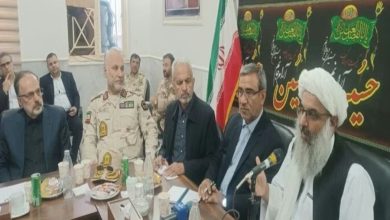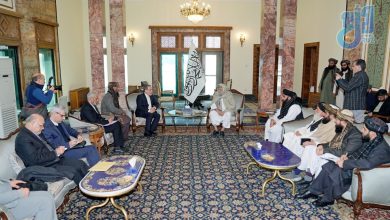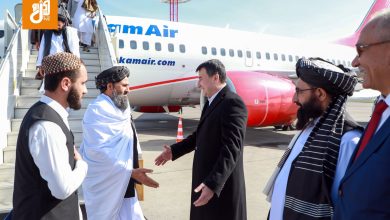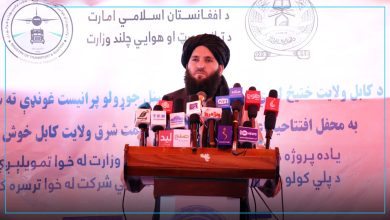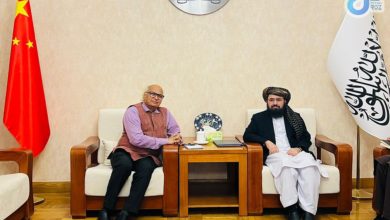Afghanistan’s Minister of Refugees and Returnees Meets with Japanese Ambassador
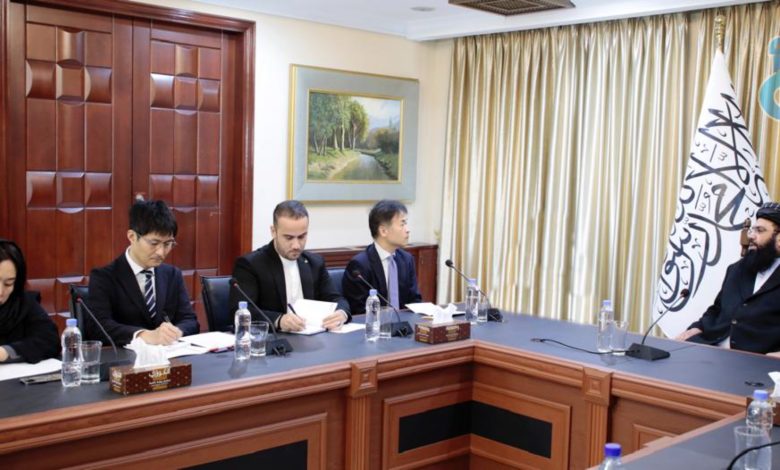
Weezha Roz-The meeting between Mawlawi Abdul Kabir, the Acting Minister of Refugees and Returnees of Afghanistan, and Mr.
Takayoshi Koromaya, Japan’s Ambassador to Kabul, holds particular significance, especially given the current circumstances in Afghanistan.
This meeting was part of Japan’s ongoing efforts to support Afghanistan in humanitarian affairs and address Afghanistan’s concerns regarding the situation of Afghan refugees and returnees.
At the outset of the meeting, the Japanese Ambassador expressed his condolences over the martyrdom of the former Minister of Refugees and Returnees, Haji Khalil-ur-Rahman Haqqani.
This gesture highlights Japan’s continued diplomatic engagement and respect for Afghanistan and its people, particularly during this time of crisis.
The assassination of a senior Afghan official, amid the country’s ongoing challenges, reflects the critical situation in the country and the human toll of its prolonged conflicts.
Japan’s Humanitarian Aid to Afghanistan:
A key part of the meeting focused on Japan’s humanitarian aid to Afghanistan. The Japanese Ambassador noted that Japan has consistently provided humanitarian assistance to the Afghan people since 2021.
The 1.5 million donation in December for returnee migrants from Iran and Pakistan, particularly for temporary housing, health services, education, and basic needs, is a testament to Japan’s commitment to supporting Afghanistan’s people through these challenging times.
Given the long-standing relationship between Japan and Afghanistan, these contributions go beyond mere humanitarian assistance; they significantly aid in improving the human conditions within the country.
Furthermore, Japan’s prior commitment of27.5 million in aid, allocated to sectors such as health, education, anti-narcotics efforts, and climate change, plays an effective role in fostering Afghanistan’s stability and long-term sustainability.
Minister Abdul Kabir’s Position:
Mawlawi Abdul Kabir, Afghanistan’s Minister of Refugees, also emphasized the importance of such humanitarian support and expressed gratitude for Japan’s ongoing assistance.
The most significant point raised by Minister Kabir was that humanitarian aid should not be politicized. This statement reflects Afghanistan’s concerns about the potential use of aid as a political tool by certain countries.
Such concerns are especially valid given Afghanistan’s political and economic instability, as the people of the country have consistently faced challenges regarding international aid.
The Minister further urged neighboring countries to halt the deportation of Afghan migrants and allow them to return voluntarily to Afghanistan.
This request reflects not only the humanitarian need to improve the conditions of Afghan returnees but also Afghanistan’s deep concerns about internally displaced persons (IDPs) and returning migrants.
In this context, Afghanistan’s diplomacy requires careful attention and ongoing effort to effectively defend the rights and welfare of its citizens.
Conclusion and Overall Analysis:
At the conclusion of the meeting, both parties emphasized the need to strengthen positive and sustainable relations and cooperation between Afghanistan and Japan.
This meeting broadly reflects the mutual commitment of both sides to improve the conditions of Afghan refugees, enhance bilateral relations, and attract humanitarian support.
It highlights the importance of multilateral and global cooperation in addressing Afghanistan’s crises and challenges.
Japan continues to be recognized as a key partner in supporting Afghanistan during this difficult period.
Ultimately, this meeting not only serves as a diplomatic effort to solidify ties between the two countries but also sets a potential example for other nations on how to provide humanitarian aid and address the challenges faced by Afghan migrants.
The discussions underscore the significance of international partnerships and collective efforts in solving complex issues that affect vulnerable populations, particularly in conflict-affected regions like Afghanistan.
Weezha Roz
